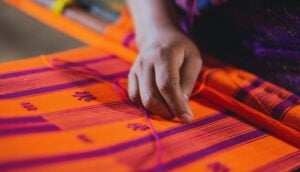For large companies operating in emerging and developing countries, Micro, Small and Medium-Sized Enterprises (MSMEs) are key business partners along the value chain – as suppliers, distributors, retailers and customers. MSMEs can create access to untapped low-income markets. As retailers, clinics, pharmacies or service providers, they reach both rural and urban households with goods and services. As traders, farm shops, veterinarians and advisors, they support farmers. They are also key to building prosperous, healthy communities and can bridge the formal-informal divide. As such, they are critical to the achievement of the SDGs. For many large companies, MSMEs are essential partners that power business growth and achieve positive social impact.
MSMEs face multiple challenges
However, MSMEs often struggle with the difficult market environment around them. A lack of access to finance and markets, a lack of skills and an unsupportive policy environment are among the biggest obstacles. They may be able to “muddle through” and deal with informality and high transaction costs, but their development is also hampered by a lack of management capacity and scale.
To help overcome these challenges, many large companies and their partners support MSME partners in their value chain directly through training, access to finance, or other support. However, this approach can be costly and limited. Companies usually focus on one or two limiting factors, but MSMEs struggle with a number of barriers that hold them back – and these barriers are often interconnected. To really unlock the potential of MSME collaboration, large companies, alongside governments and development partners, need to move towards a more holistic and joined-up approach to enterprise support with the goal of strengthening the underlying ecosystem in which MSMEs operate.
Taking an ecosystems approach to enterprise support
The MSMEs ecosystem is made up of different inter-connected and inter-dependent stakeholders whose actions influence the success of MSMEs. It includes suppliers and buyers, as well as other actors providing finance, capacity infrastructure and rules, such as governments, banks and service providers.
For large companies, building the ecosystem for MSMEs can reach further and cost less than providing direct support. For example, instead of giving SME retailers extremely long payment targets, large companies could bring in a financial services firm that provides working capital on good terms, possibly facilitated by guarantees from the large company. All sides win.
Effective collaboration with other players in the ecosystem is critical to success. Through our research to date, we found companies working in different constellations with a whole spectrum of organisations, from local to national government, donors and funders, NGOs and social enterprises, and other large and small companies, each contributing complementary capabilities and resources.
To scale financial inclusion in rural areas of Lesotho, for example, the Mobile Network Operators Vodacom and Econet closely collaborate with First National Bank, Standard Lesotho Bank, the Ministry of Finance, the United Nations Development Programme and others as part of the Lesotho SIMM Platform. Since 2017, the public and private actors have partnered to improve policies and regulations, develop new mobile money products and applications, drive financial education among rural populations, and build capacity of mobile money agents and merchants.
In Kenya, the FMCG company Unilever is partnering with Mastercard and Kenya Commercial Bank to develop a digital working capital platform, called Jaza Duka, that helps small merchants grow sales. The platform was launched in 2017 and has already reduced cash-flow challenges of over 20,000 merchants and small distributors by providing working capital. Participating merchants have experienced a 20% growth in sales on average.
Taking an ecosystem strengthening approach can be more efficient because it builds on existing capabilities, leverages external resources (thus reducing own costs), shares risks and creates the opportunity for interventions to live independently. It enables the development and growth of MSME partners, thus setting off a virtuous cycle that goes far beyond the large company’s own operations, and ultimately has the potential to transform markets and communities.
Filling a gap in practical guidance to help large companies apply an ecosystem strengthening approach
Through our research to date we have identified a dozen companies that have successfully applied this ecosystem strengthening strategy in sectors as diverse as FMCG, agribusiness, mining and financial services, and across the world in Africa, Asia and Latin America. Drawing on these examples, discussions with experts, and the advice of large company and foundation partners (AB Sugar, Bayer, Small Foundation, Vitol Foundation and Visa), we are currently developing a practical framework and guidance to help large companies think through how to develop an MSME ecosystem strengthening approach in their own operating contexts. The guidance will be available in mid-November.










